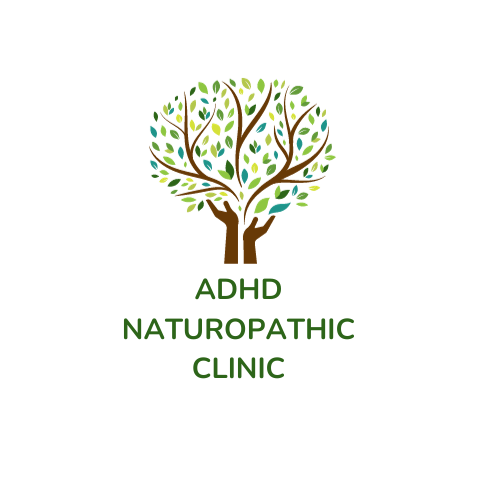Unraveling ADHD with Personalised Testing Strategies
ADHD, or Attention Deficit Hyperactivity Disorder, is a widely recognized neurodevelopmental condition that affects millions of individuals worldwide. However, amidst the growing awareness of ADHD, there lies a shadow of misdiagnosis, casting doubt and confusion over the lives of many. The prevalence of ADHD misdiagnosis is a sobering reality, with far-reaching implications for individuals, families, and communities. Inaccurate diagnoses can lead to ineffective treatment strategies, emotional distress, and missed opportunities for proper support and intervention. Yet, amidst this challenge, the importance of accurate diagnosis and effective treatment cannot be overstated. Each individual deserves the opportunity to receive the right diagnosis and appropriate care tailored to their unique needs. .
Common Symptoms and Conditions Leading to ADHD Misdiagnosis:
ADHD misdiagnosis can occur due to various symptoms and conditions that mimic its presentation. It's essential to consider these potential mimicking conditions when evaluating symptoms associated with ADHD to ensure an accurate diagnosis and appropriate treatment plan. These may include:
Sleep Disorders: Conditions such as sleep apnea, insomnia, or restless leg syndrome can lead to fatigue and inattention during the day, resembling symptoms of ADHD.
Anxiety Disorders: Anxiety can manifest as restlessness, impulsivity, and difficulty concentrating, which overlap with ADHD symptoms, leading to misinterpretation.
Depression: Low energy levels, difficulty concentrating, and feelings of hopelessness can resemble symptoms of ADHD, particularly in adults.
Learning Disabilities: Dyslexia, dyscalculia, and other learning disabilities can impair academic performance and attention, often mistaken for ADHD.
Sensory Processing Issues: Sensory processing disorders can disrupt focus and attention, especially in environments with sensory stimuli, contributing to ADHD-like symptoms.
Mood Disorders: Depression can present with symptoms such as poor concentration, irritability, and low energy, which may be misconstrued as ADHD symptoms.
Thyroid Disorders: Hypothyroidism, characterized by fatigue, difficulty concentrating, and mood changes, can present symptoms similar to ADHD
Hearing or Vision Problems: Undiagnosed hearing or vision impairments can lead to inattention, distractibility, and difficulty following instructions, which may be misinterpreted as ADHD symptoms.
Seizure Disorders: Certain types of seizures, particularly absence seizures, can manifest as brief periods of staring or inattention, resembling symptoms of ADHD.
Reactive Attachment Disorder (RAD): Children with RAD may display hyperactive or impulsive behaviors due to difficulties forming attachments, which may be mistaken for ADHD symptoms.
Challenges of ADHD Misdiagnosis:
ADHD misdiagnosis poses several challenges and consequences, including:
Ineffective Treatment Strategies: Misdiagnosis can lead to inappropriate treatment approaches, resulting in persistent symptoms and frustration for individuals seeking relief.
Emotional Distress: Individuals and their families may experience emotional distress and frustration when faced with misdiagnosis, impacting their overall well-being and quality of life.
Academic and Occupational Difficulties: Untreated underlying conditions, such as learning disabilities or anxiety disorders, can hinder academic and occupational success, exacerbating challenges in daily life.
Stigmatization and Misunderstanding: Misdiagnosis contributes to stigma and misunderstanding surrounding ADHD and related disorders, leading to misconceptions and barriers to proper support and intervention.
The Role of Organic Acid Testing (OAT) in ADHD Management:
OATs testing offers valuable insights into ADHD management by:
Identifying Underlying Metabolic Imbalances: OATs testing can uncover metabolic dysfunctions contributing to ADHD-like symptoms, providing a deeper understanding of the root causes.
Differentiating Between True ADHD and Other Conditions: OATs testing helps distinguish between true ADHD and conditions with similar presentations, ensuring accurate diagnosis and tailored treatment.
Guiding Personalized Treatment Approaches: OATs testing informs personalized treatment strategies, addressing individual biochemical needs to optimize symptom management and overall well-being.
Monitoring Treatment Progress: OATs testing allows for ongoing monitoring of treatment progress, enabling adjustments to interventions as needed for optimal outcomes.
Empowering Individuals with ADHD Through OATs Testing:
OATs testing empowers individuals with ADHD by:
Providing Clarity and Validation: OATs testing validates individuals' experiences by identifying underlying metabolic imbalances, providing clarity and validation for those who have experienced misdiagnosis.
Offering Hope for Effective Treatment: By addressing root causes, OATs testing offers hope for effective treatment strategies and symptom management, enhancing overall well-being and quality of life.
Enhancing Overall Well-Being: OATs testing contributes to holistic well-being by addressing underlying imbalances, improving overall health, and supporting individuals in their ADHD management journey.
OATs testing plays a vital role in addressing ADHD misdiagnosis and enhancing overall management. By uncovering metabolic imbalances, guiding personalized treatment approaches, and empowering individuals with ADHD, OATs testing offers a transformative approach to understanding and managing ADHD symptoms.
Discover the power of OATs testing as a holistic approach to managing ADHD, irrespective of prior misdiagnoses, to enhance your overall health and vitality.
Take the next step in your journey towards wellness by booking an appointment with us to have your OATs test ordered and analyzed.

